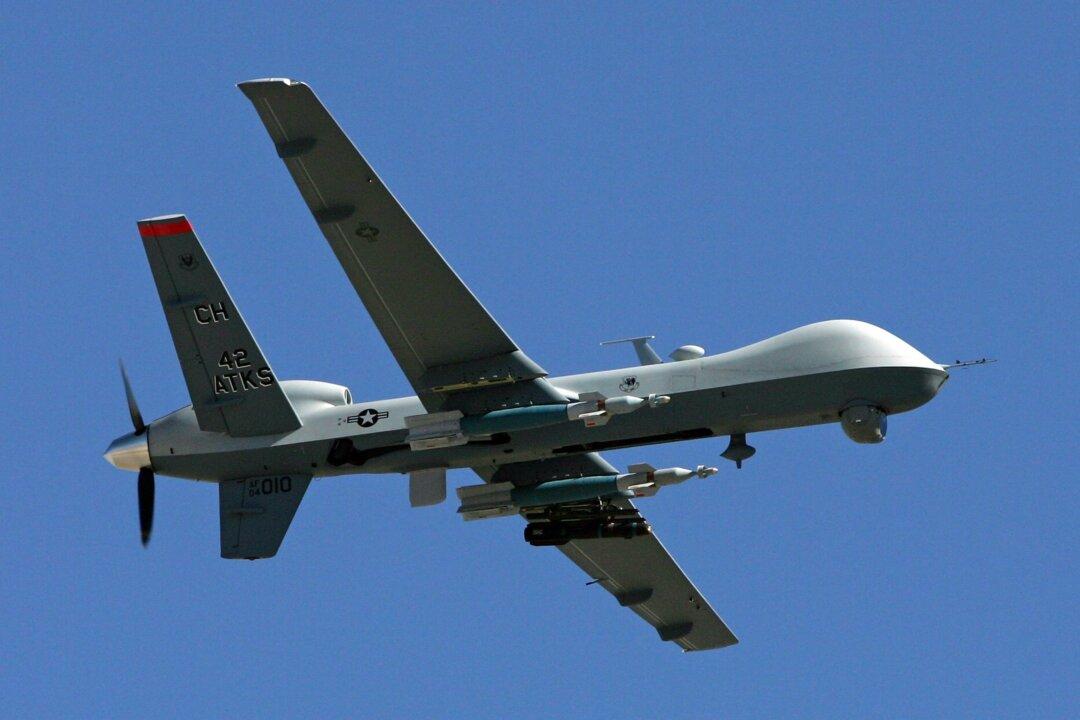U.S. military drones were harassed three times in three days by Russian aircraft in Syria, Pentagon officials have confirmed.
The U.S. Central Command, or CENTCOM, stated on July 9 that it carried out a drone strike on July 7 that killed Usamah al-Muhajir, an ISIS terrorist leader in Syria, and that it used MQ-9 Reaper drones in the attack. No other details were provided, other than that those drones “earlier in the day been harassed by Russian aircraft in an encounter that had lasted almost two hours.”





